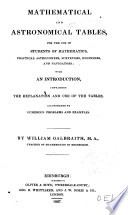 | William Galbraith - Astronomy - 1827 - 412 pages
...of the number y, the invariable number r is called the base and, finally, the logarithm of a number, the power to which the base must be raised in order to produce that number. With regard to the base r it is arbitrary, and when we write a;=log. у to show... | |
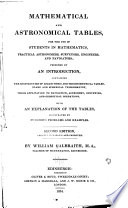 | William Galbraith - Astronomy - 1834 - 454 pages
...the number y, the invariable number r is called the base, and, finally, the logarithm of a number, the power to which the base must be raised in order to produce that number. With regard to the base r it is arbitrary, and when we write jr=log. y to show... | |
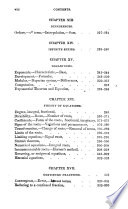 | Stephen Chase - Algebra - 1849 - 348 pages
...also the RADIX (§23. d), of the system. Hence, for a given base, § 312. The logarithm of any number is the exponent of the power to which the base must be raised, to produce that number. Thus, 2 is the logarithm of 100 to the base 10 ; because ~2 is the exponent... | |
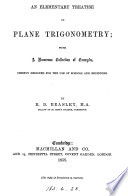 | Richard Dunkley Beasley - Plane trigonometry - 1858 - 144 pages
...N. Hence we obtain the following definition. The logarithm of a number to a given base, is the index of the power to which the base must be raised in order to be equal to the given number. 53. In the equation N= ax, let a be some constant quantity greater than unity: then... | |
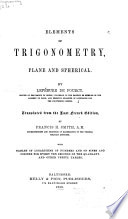 | Lefébure de Fourcy (M., Louis Etienne) - Trigonometry - 1868 - 350 pages
...to the law of continuity and do not reproduce all numbers. The logarithm of a number to a given base is the exponent of the power to which the base must be raised to become equal to the given number. 4. Since a1 =a, a° = l, and a—=° =0, or а+°° =0, according... | |
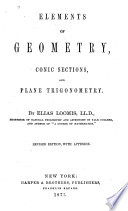 | Elias Loomis - Conic sections - 1877 - 458 pages
...All numbers are regarded as powers of some one number, which is called the base of the system ; and the exponent of the power to which the base must be raised in order to be equal to a given number is called the logarithm of that number. The base of the common system of logarithms (called, from their... | |
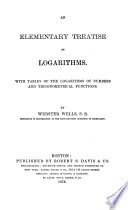 | Webster Wells - Logarithms - 1878 - 124 pages
...то 90° 17 DEFINITIONS AND PROPERTIES. I, DEFINITION. The logarithm of a quantity to any given base, is the exponent of the power to which the base must be raised to equal the quantity. For instance, if ax = m, x is the exponent of the power to which the base, a,... | |
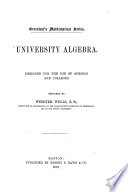 | Webster Wells - Algebra - 1879 - 468 pages
...for 4 years and 6 months ? XLI. — LOGARITHMS. 444. The logarithm of a quantity to any given base, is the exponent of the power to which the base must be raised to equal the quantity. For example, if a* = m, x is the exponent of the power to which the base, a,... | |
 | Thomas Grenfell Vyvyan - 1882 - 150 pages
...The base a is always 10 in practice. The logarithm of a number to a given base is therefore the index of the power to which the base must be raised in order to obtain the number. 51. The utility of logarithms depends on the following propositions : (i) log,,... | |
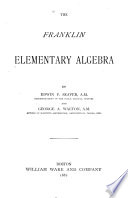 | Edwin Pliny Seaver, George Augustus Walton - Algebra - 1881 - 304 pages
...positive value except 1. The base of the common system of logarithms is 10. 384. The logarithm of a number is the exponent of the power to which the base must be raised to produce the number. The abbreviation log is used for the words the logarithm of. 385. The value... | |
| |